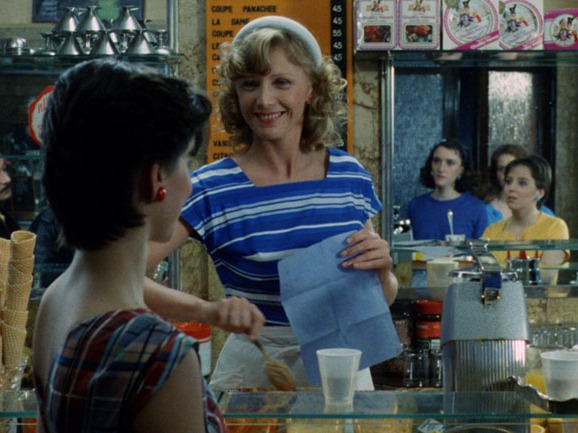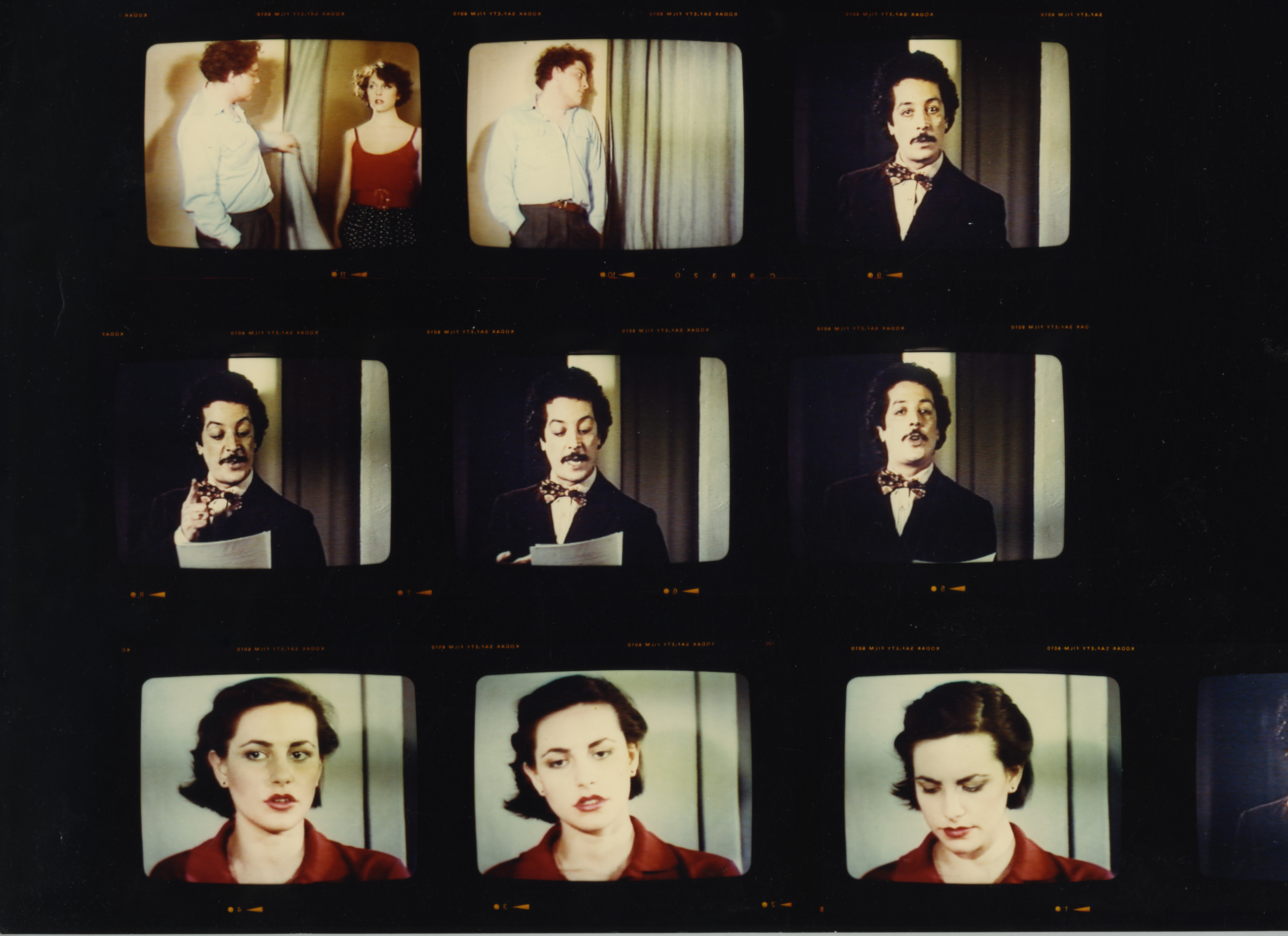
Les Années 80 was born out of auditions I held to find Belgian actors to play in the musical Golden Eighties. The actors were so great, and the images so powerful, that it was a shame for the material to be lost. We did forty hours of video auditions and put together an hour which is a sort of trajectory between a script and the future direction of a film. (Chantal Akerman)
EN
“It begins with voices heard over black - the voice of an actor and a director, trying to find the right intonation for a short enigmatic phrase: ‘A ton âge, un chagrin, c’est vite passé’ - meaning, ‘At your age sorrows soon pass’, or maybe, ‘At your age misery doesn’t last’. The inflection required, perhaps because meaning must be found, proves elusive. Later in the film, when we hear the phrase used, it sneaks up on us, deep in context. But here, listening to voices, disembodied, as if heard in a Beckett radio play, we get into the to and fro between the women, the work being done, the sense of a search, of a collaboration. Women are speaking, but we don't see them. The things that happen when we see women on screen - fall into the charged world of the image - can’t happen. Instead we listen.”
Adam Roberts1
“Perhaps because Godard had done it (with Une femme est une femme), as had Jacques Demy (with Les demoiselles de Rochefort), so too was Chantal Akerman spurred to conceive of making a Technicolor musical. Or there again, maybe it is just the fact that Minnelli’s musicals at MGM (how wonderful is The Band Wagon!) are such very good films, that any film artist would want to navigate those waters. The trouble, in 1983, for Chantal Akerman was that a significant budget would be required. The solution, to put it crudely, was to make a ‘making of’ before the making, a kind of calling card that would beguile financiers.
Les années 80 is that – but it is also an experiment, an adventure in intertextuality, the revelation of process that is in itself a search for a way of making. Chantal Akerman appears as herself, off and on camera, urging, instructing, commanding, performing. The spirit of her first film, Saute ma ville!, is reignited – spritely, energetic and full of fun.”
Joanna Hogg and Adam Roberts2
“One of the more touching aspects of Les années 80 and Golden Eighties is that Akerman’s own exuberant conducting of a robust waltz sung by an actress in a sound studio in the former film is far more animated, physical, emotional, and moving than the ‘finished’ (and abbreviated) version performed by a different actress is in the second film. More generally, Akerman’s documentaries might be said to run the gamut from the relatively routine (Un jour Pina à demandé [1983] and Sud [1999]) to the extremely powerful (D’est and De l’autre côté [2002]), with Les années 80 and Chantal Akerman par Chantal Akerman somewhere in between these extremes.”
Jonathan Rosenbaum3
- 1Adam Roberts, “Chantal Akerman’s Les Anneés 80. A Film About Spinning,” Huffington Post Blog, 2014.
- 2Joanna Hogg and Adam Roberts, “A Nos Amours. Chantal Akerman 8. Les Années 80,” ICA, 2014.
- 3Jonathan Rosenbaum, “Chantal Akerman. The Integrity of Exile and the Everyday,” LOLA Journal, originally published in Retrospektive Chantal Akerman, a publication of the Viennale/Austrian Filmmuseum, 2011.


